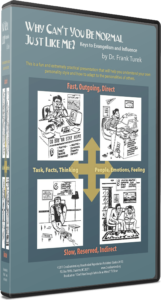By Brian Chilton
Some time ago, I was in a meeting with pastors and other church leaders from various backgrounds discussing a potential ministry opportunity. I noted the importance that apologetics plays in the realm of collegiate ministries, especially with the mainstream attacks on Christianity from ultra-liberal voices. For instance, the collegiate ministry known as Ratio Christi has held a profound positive influence on the intellectual and spiritual lives of college students across the nation. To my surprise, one particular ministry leader said, “It’s my experience that people are not brought to faith by arguments.” The statement was shocking enough. However, I was even more bewildered by some who seemed to agree with him. I replied, “What do you say of Josh McDowell, Lee Strobel, and J. Warner Wallace who were former atheists and became believers because of the evidence for the Christian faith?” The conversation quickly moved to a different topic.
I do not tell this story to demonize or demoralize anyone. The person who voiced opposition to apologetics was a good, caring individual who loves the Lord and the people he serves. However, we must engage the question he presented. Do logic and argumentation bring people to faith or are such disciplines useless endeavors? The mission statement of Bellator Christi is that it exists to take up the sword of Christian theology and the shield of classical apologetics in order to take Christian truth into the arena of ideas. But if people are not argued into the faith, this ministry would seem a bit futile, at least in the latter portion of the mission statement. So, are apologetic argumentations necessary? This article will review 4 common objections given to apologetics by the modern church. Each objection will contain an explanation and an appropriate reply.
Objection #1: Arguments do not bring people to faith.
The ministry leader I mentioned posed the first objection against the use of Christian apologetics. This objection claims that arguments do not really bring people into faith. Faith is a matter of the heart, not of the mind.
Reply:
One could provide several replies to the first objection. To keep the post brief, I will present only two. First, objection 1 is in reality a self-defeating statement. How so? Well, the objector is presenting an argument to persuade others that arguments do not persuade. The objection is much like someone claiming to be a married bachelor or saying “I cannot speak a word of English” in English.
Second, the Bible presents several examples where people came to faith or were persuaded to faith by various argumentations. For instance, the miracles and teachings of Jesus provided a case for His claim to be Messiah. The miracles served as a sign. Why were such signs offered? Signs were provided to present an argument for the Messianic claims of Jesus of Nazareth. Jesus argues that “the works that the Father has given me to accomplish, the very works that I am doing, bear witness about me that the Father has sent me” (John 5:36). In addition, Jesus challenged His adversaries to “search the Scriptures because you think that in them you have eternal life; and it is they that bear witness about me” (John 5:39). Other examples could be offered such as Paul’s defense of the faith before various groups of people, including the Athenians. Consider Philip’s argumentation to the Ethiopian that Isaiah 53 referred to Jesus of Nazareth. All such arguments were used to bring people to faith.
Objection #2: The Holy Spirit brings people to faith, so argumentation is useless.
Some people have objected to the use of Christian intellectual arguments due to the assumption that the Holy Spirit leads people to faith. If the Holy Spirit leads people to faith, then why should one worry about intellectual argumentation.
Reply:
Let me first say, I wholeheartedly agree that the Holy Spirit leads people to faith. Jesus noted that when the Holy Spirit comes that He would “convict the world concerning sin and righteousness and judgment: concerning sin, because you do not believe in me; concerning righteousness, because I go to the Father, and you will see me no longer; concerning judgment, because the ruler of this world is judged” (John 16:8-11). While the Holy Spirit convicts, we are told that we have a part to play in the evangelism process. Jesus also told the disciples before His ascension, “But you will receive power when the Holy Spirit has come upon you, and you will be my witnesses in Jerusalem and in Judea and Samaria, and to the end of the earth” (Acts 1:8). One could argue; If the Holy Spirit brings people to faith, then why evangelize? Christians evangelize because God commanded us to do so. Through the preaching of the Word, people are convicted by the Holy Spirit to come to faith. The Holy Spirit uses our evangelistic efforts to save people. The same is true for apologetics. Intellectual argumentation is often used by the Holy Spirit to bring people to faith. While the majority of Athens did not follow Christ after hearing Paul’s intellectual defense of the faith, the Book of Acts states that “some men joined him and believed, among whom were Dionysius the Areopagite and a woman named Damaris and others with them” (Acts 17:34).
Another problem I have with this statement stems from the spirit of laziness that exists in some Christians today. I heard a person tell a pastor, “You don’t have to study to preach. Just follow the Holy Spirit.” While I wholeheartedly agree that a person should follow the Holy Spirit, I also accept that the Scripture tells us the “test the spirits” (1 John 4:1). How does a person test a spirit? One tests a spirit against the Word of God. Testing spirits require study. I truly believe that it is the increased biblical illiteracy and lack of study that has led the modern church into many great heresies.
Objection #3: No one has ever come to faith through argumentation.
Anti-apologetic apologists argue that no one comes to faith through intellectual argumentation. Why bother if no one comes to faith through argumentation?
Reply:
This is an easy objection to answer. The claim is false. Many have come to faith through intellectual argumentation for the faith. Among such converts include: C. S. Lewis (famed English professor and writer), Josh McDowell (author of countless Christian books), Lee Strobel (former legal editor of theChicago Tribune, atheist turned Christian pastor and writer), Fazale Rana (Christian biologist), and J. Warner Wallace (former Los Angeles cold-case homicide detective turned Christian apologist). These individuals only scratch the surface of those who have come to Christ because of the evidence for Christianity.
Objection #4: If someone is argued into faith, then someone could be argued out of faith.
Lastly, objectors to Christian apologetics often claim that if it is by evidential argumentation that one comes to faith, then one could be easily led astray by some other persuasive argumentation.
Reply:
This objection holds two problems in my estimation. 1) The objector does not understand the power of the Holy Spirit. If Christianity is true and a person comes to faith in Christ, then the Scripture states that the Holy Spirit will abide with the repentant person (John 14:15-16). Jesus notes that the Holy Spirit would lead a believer in truth (John 15:26-27). Thus, it would appear that the objector places less value on the power of the Holy Spirit than the advocate of Christian apologetics.
2) In addition, the objector must consider the following point. If Christianity is true, then it will always remain true. The truthfulness of Christianity will never change. Truth is unchangeable. Thus, if a person is truly convicted of the claims of Christianity and truth does not change, then the person (although doubts may come) will not leave the faith due to the truth claims.
Conclusion:
While I respect the objections made and the people who make them, it cannot be said that such objections hold any merit or value. Christianity is true. Period. If Christianity is true, then it is worth defending. If Christianity is true, eternity is at stake. Some people do come to faith when they are met with the evidences for Christianity. It may be true that some people do not require the same level of evidence that other people require. But, refusing apologetics to the one who needs it is like refusing insulin to a diabetic because not everyone needs insulin. It is, to a degree, a categorical mistake. Remember, Peter tells us, as has been noted several times before, that we must “honor Christ the Lord as holy, always being prepared to make a defense to anyone who asks you for a reason for the hope that is in you; yet do it with gentleness and respect” (1 Peter 3:15).
Check out this video by Brett Kunkle of Stand to Reason as he engages this issue: https://www.youtube.com/watch?v=0cS2xGUj5KQ
[1] Unless otherwise noted, all Scripture comes from theEnglish Standard Version (Wheaton: Crossway, 2001).
Visit Brian’s website at BellatorChristi.com © August 30, 2016. Brian Chilton.
Resources for Greater Impact:




 LEE STROBEL 3-DISC COLLECTION
LEE STROBEL 3-DISC COLLECTION COLD-CASE CHRISTIANITY: A HOMICIDE DETECTIVE INVESTIGATES THE CLAIMS OF THE GOSPELS
COLD-CASE CHRISTIANITY: A HOMICIDE DETECTIVE INVESTIGATES THE CLAIMS OF THE GOSPELS
 KEYS TO EVANGELISM AND INFLUENCE.
KEYS TO EVANGELISM AND INFLUENCE.  UPWARD, INWARD, OUTWARD.
UPWARD, INWARD, OUTWARD.